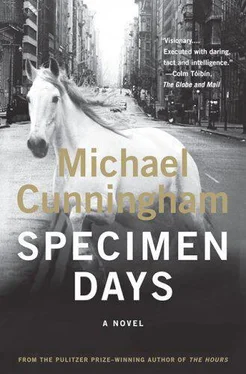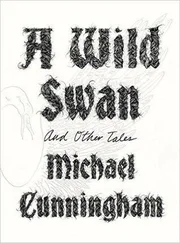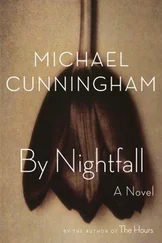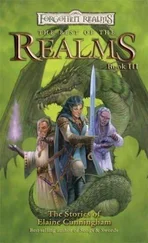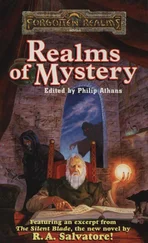Michael Cunningham - Specimen Days
Здесь есть возможность читать онлайн «Michael Cunningham - Specimen Days» — ознакомительный отрывок электронной книги совершенно бесплатно, а после прочтения отрывка купить полную версию. В некоторых случаях можно слушать аудио, скачать через торрент в формате fb2 и присутствует краткое содержание. Город: New York, Год выпуска: 2005, ISBN: 2005, Издательство: Farrar, Straus and Giroux, Жанр: Современная проза, на английском языке. Описание произведения, (предисловие) а так же отзывы посетителей доступны на портале библиотеки ЛибКат.
- Название:Specimen Days
- Автор:
- Издательство:Farrar, Straus and Giroux
- Жанр:
- Год:2005
- Город:New York
- ISBN:0-374-70515-1
- Рейтинг книги:4 / 5. Голосов: 1
-
Избранное:Добавить в избранное
- Отзывы:
-
Ваша оценка:
- 80
- 1
- 2
- 3
- 4
- 5
Specimen Days: краткое содержание, описание и аннотация
Предлагаем к чтению аннотацию, описание, краткое содержание или предисловие (зависит от того, что написал сам автор книги «Specimen Days»). Если вы не нашли необходимую информацию о книге — напишите в комментариях, мы постараемся отыскать её.
Specimen Days — читать онлайн ознакомительный отрывок
Ниже представлен текст книги, разбитый по страницам. Система сохранения места последней прочитанной страницы, позволяет с удобством читать онлайн бесплатно книгу «Specimen Days», без необходимости каждый раз заново искать на чём Вы остановились. Поставьте закладку, и сможете в любой момент перейти на страницу, на которой закончили чтение.
Интервал:
Закладка:
Because there was nothing to do or say, Dan left. After he had gone, Catherine said to Lucas, “You must lie down. I’m afraid it will have to be the floor.”
He answered, “I will go to the bank by the wood and become undisguised and naked, I am mad for it to be in contact with me.”
“Shh. Hush now. You must rest. You must rest and be quiet.”
“I am satisfied I see, dance, laugh, sing.”
“Come along now,” Catherine said. “You make yourself worse by raving.”
She helped him to lie down on the floor. She sat on the floor herself so he could lie with his head on her lap. Here under his head were the starchy folds of her blue dress.
He said, “You will stay with me?”
“I told you I would.”
“Not only today.”
“For as long as I need to.”
Lucas was pain and Catherine’s lap. The pain was a cocoon that wrapped him like fiery bandages. In the cocoon, in Catherine’s lap, it was difficult to think of anything but that. Still, he struggled. He held to himself. He had brought her here, but he’d only saved her from today. He must do something further. He could not know what.
“Catherine?” he said.
“Shh. Don’t speak.”
“You have to come away with me.”
“Forget about that. Forget everything.”
He strove not to forget. He said, “You were wrong, yesterday.”
“Not another word.”
“You must take the baby and go away.”
“Hush. Hush.”
He saw it, through the fiery cocoon. She must take the baby and go to a place like the park at night, a place of grass and silence. She must go out searching, as Walt had told Lucas to do. There were such places, not only the park. He’d seen the pictures. There were fields and mountains. There were woods and lakes. He could take her to a place like that, he thought. He would find a way to do it.
From the cot, the man murmured on.
A sister came into the room. Her black habit was alive; it had created within itself her face, which was carved from wood. She wrapped Lucas’s hand in new bandages. She produced (had it been inside her habit?) a syringe full of clear liquid. She took his other arm, the undamaged one, with the practiced calm of a boot maker nailing a sole. She put the needle in, which stung like a bee, a small pain, an interesting one, differently alive, like a tiny flame. She withdrew the needle and departed. She had not spoken at all. Because her face was carved from wood, she wasn’t able to speak.
After some time, a flower blossomed in Lucas’s mind. He felt it, an unfurling of petals, a transformation from bud to bloom. The pain was there still, but it was not in him anymore. The pain had left him as the spirit leaves the body of the deceased. It had made of itself a curtain, shimmering, as if curtains could be made of glass and the glass were veined with colors and tiny instances of light. The curtain hovered, fragile as glass, around Lucas and Catherine. It encircled them. Pain ran through it in capillaries of blue and green, of softest pink. Where it was most intense, pain produced watery quiverings of illumination, like light on a river. Pain surrounded them, and they were here, inside it.
Lucas didn’t think he slept. He didn’t think he dreamed. He was able, though, to see things he ordinarily saw in dreams. He saw that outside the pain curtain, outside the walls of the room, was the hospital, with its patiently damaged supplicants and its crying man. Outside the hospital was the city, with its houses and factories, its streets where Walt walked, marveling at everything, at smiths sweating over their forges and women strolling under feathered hats, at gulls circling in the sky like dreams the hats were having. Outside the city was the book, which invented what Walt saw and loved, because the book loved Walt and wanted to delight him. Outside the book… was there anything outside the book? Lucas couldn’t be sure. He thought he saw a distance, an immensity that was in the book and outside it. He thought he saw fields and mountains, forests and lakes, though they were not as they appeared in the pictures. He had thought from pictures that they were flat and drab, all murky greens and limpid, shallow blues. He saw now that they were alive and brilliantly colored. There were oceans of grass, swaying. There were mountains blindingly white.
Lucas’s forehead was caressed. Catherine whispered to him. He couldn’t tell what she said.
Something said, Lucas, it’s time. What was it time for?
Everything changed. He stood in the room again, though it was the room as it truly was, a scrim shaped like a room, with a city around it and an ocean of grass beyond. He wondered if others knew. He wondered if the wooden nun knew, for here she was, here was the back of her, and here was Catherine’s arm, helping him. He was walking, he seemed to be walking. The curtain of pain followed him, blinking and coalescing.
He was in the corridor where the waiting waited. They were bright with their own pain, suffused by it, rendered beautiful and strange, phosphorescent. As he walked among them, he knew they were his friends. He knew that the harmed, all of them, were his family, relations he had not met but knew by blood.
Then he saw Simon. Simon walked out of a door and stood in the hallway before him.
Lucas stopped. His brother was terrible to see. His face was pulp, with one dark eye staring blindly from its socket and the other vanished entirely. What remained of his hair was matted, plastered to what remained of his skull. His right arm, the one that had been taken by the clamp and pulled under the wheel, was tatters clinging to bone. The fabric of his shirt had gotten muddled up with his chest, so that fabric and flesh were one. His heart, intact, bigger than Lucas would have expected it to be, glistened between the clean lines of his yellow-white ribs.
It was Simon released, finally, from the machine and the box. It was the Simon they had not been permitted to see. How had he gotten out?
Simon said, You’ve brought her to me.
“Lucas, what is it?” Catherine asked.
Simon said, Thank you. I’m glad to have her here.
A sister came and took Simon’s arm, the other one, the one not yet ruined. She hurried him away.
“It’s all right,” Catherine said. “That man has been terribly hurt. There’s nothing we can do for him. Come along.”
Lucas said, No. He could not be sure if he had spoken aloud.
He said, We have to leave.
Because he couldn’t be sure if he spoke or didn’t speak, he turned and went the other way, toward the waiting room, moving quickly among the fallen. His legs were good, they had their own intelligence. He knew Catherine would follow him. He hoped she would.
He saw himself open the door with his good hand. He saw himself move through the waiting room, past the crying man, past the mother and father who rocked and moaned with their child. (Would their names ever be called?) He saw himself go through the outer door and into the street. It was daytime. People walked, carrying parcels.
Catherine was there, behind him. She had followed. She said, “Come back. Please.”
He started off down the sidewalk. Did she follow him? Yes, she did.
He saw that the red bundle of his hand was held close to his chest, near his heart, like a second heart he wore outside.
Catherine said, “Stop. Lucas, stop. You’ll lose your place.”
It was funny, hearing her say that. She thought he’d been waiting for a gift, some marvel he would not want to lose, when what he wanted, all he wanted, was to lead her away.
He ran on. He was sure of where he was going, where he was taking her, but couldn’t name it. He knew only that it lay in this direction. He imagined it was somewhere safe, a place of trees and mountains. Trees and mountains were out there, ahead of him, ahead of Catherine, and though they lay at an unknowable distance he knew that with every stride he led her closer to them, farther away from the dead. He knew only, but he knew with utter certainty, that he must keep moving. He knew he must take her with him and couldn’t do it with words or explanations. He had no language for that. He had only his body to speak with, he had only his legs.
Читать дальшеИнтервал:
Закладка:
Похожие книги на «Specimen Days»
Представляем Вашему вниманию похожие книги на «Specimen Days» списком для выбора. Мы отобрали схожую по названию и смыслу литературу в надежде предоставить читателям больше вариантов отыскать новые, интересные, ещё непрочитанные произведения.
Обсуждение, отзывы о книге «Specimen Days» и просто собственные мнения читателей. Оставьте ваши комментарии, напишите, что Вы думаете о произведении, его смысле или главных героях. Укажите что конкретно понравилось, а что нет, и почему Вы так считаете.
